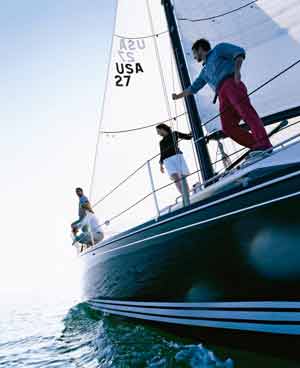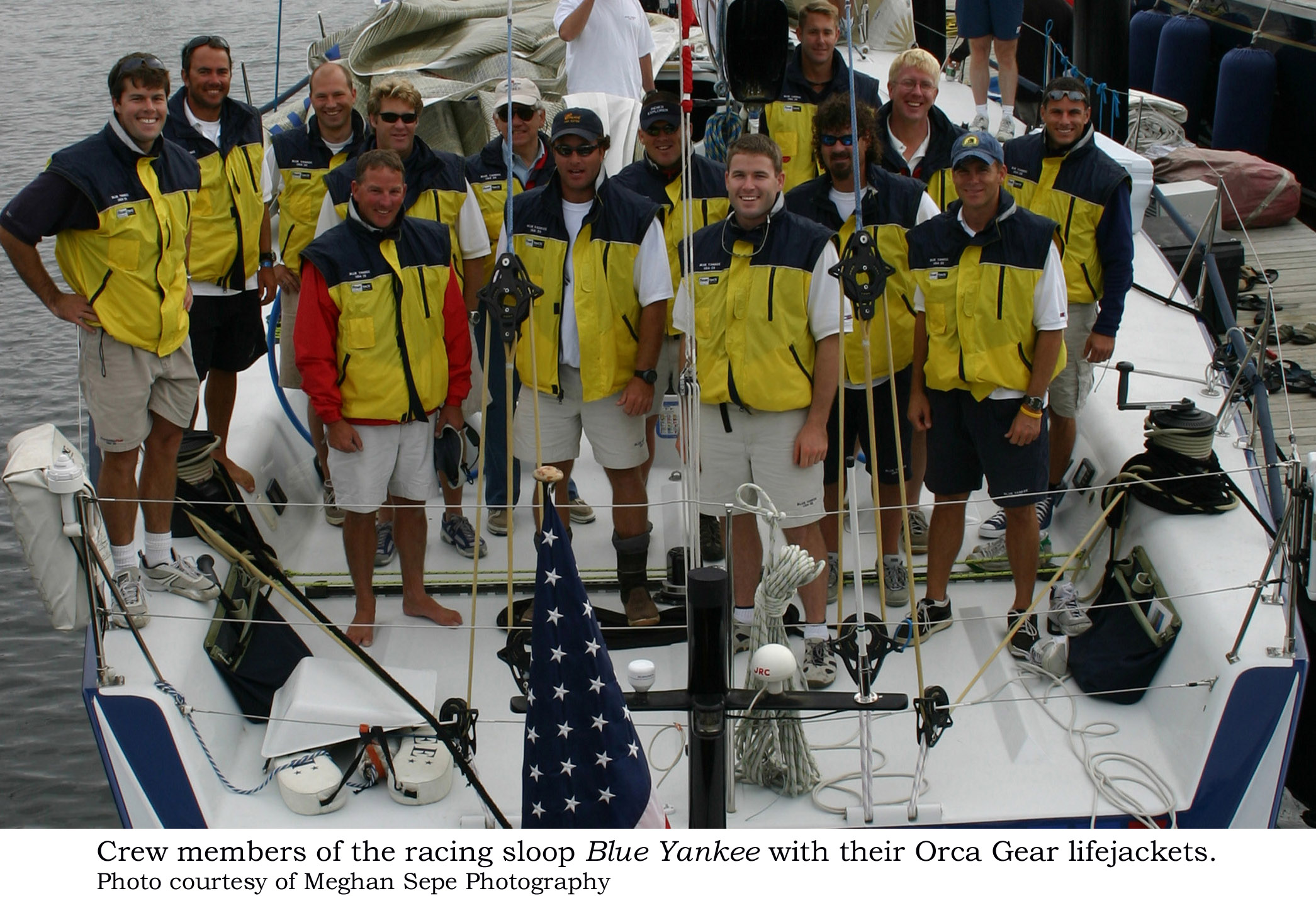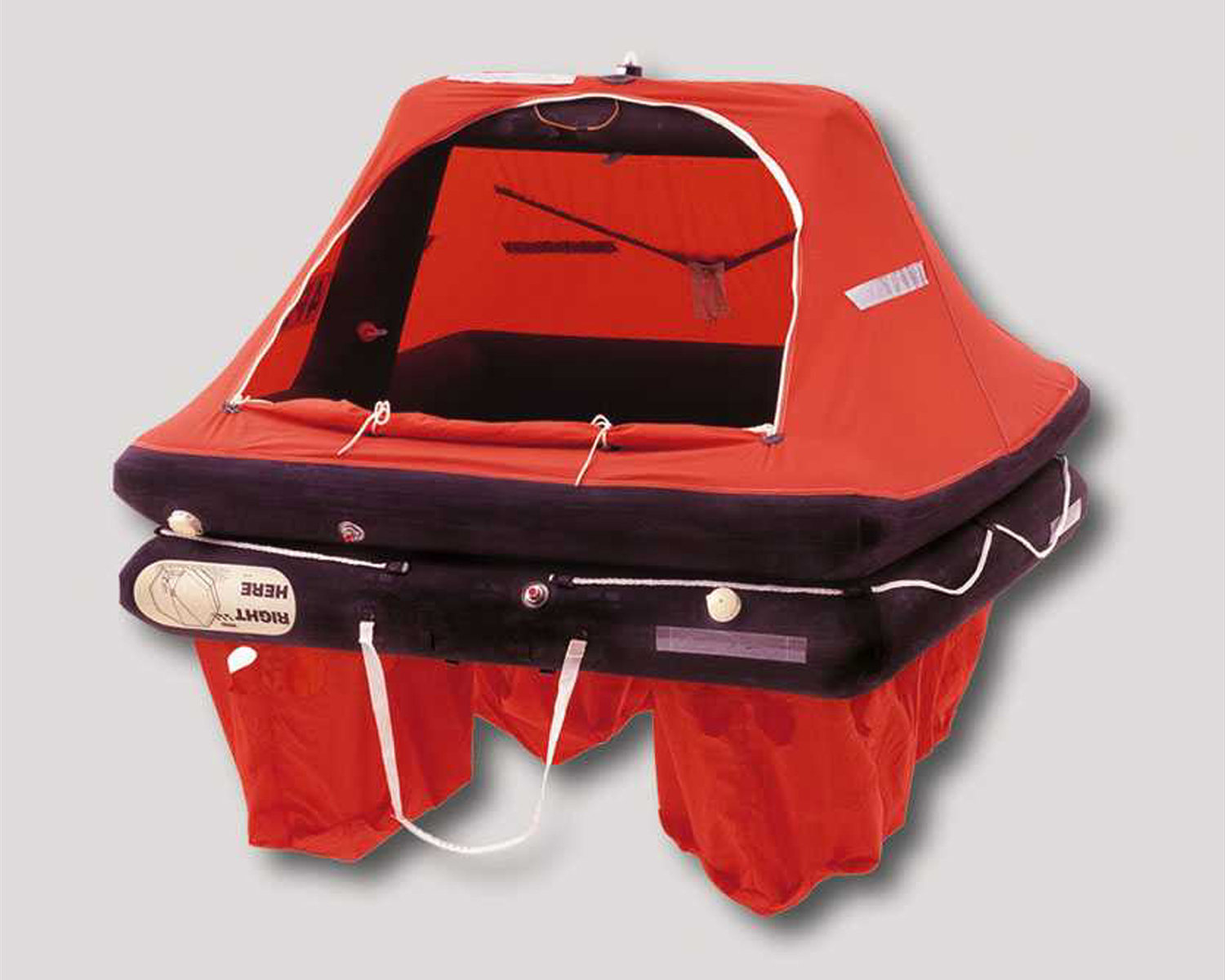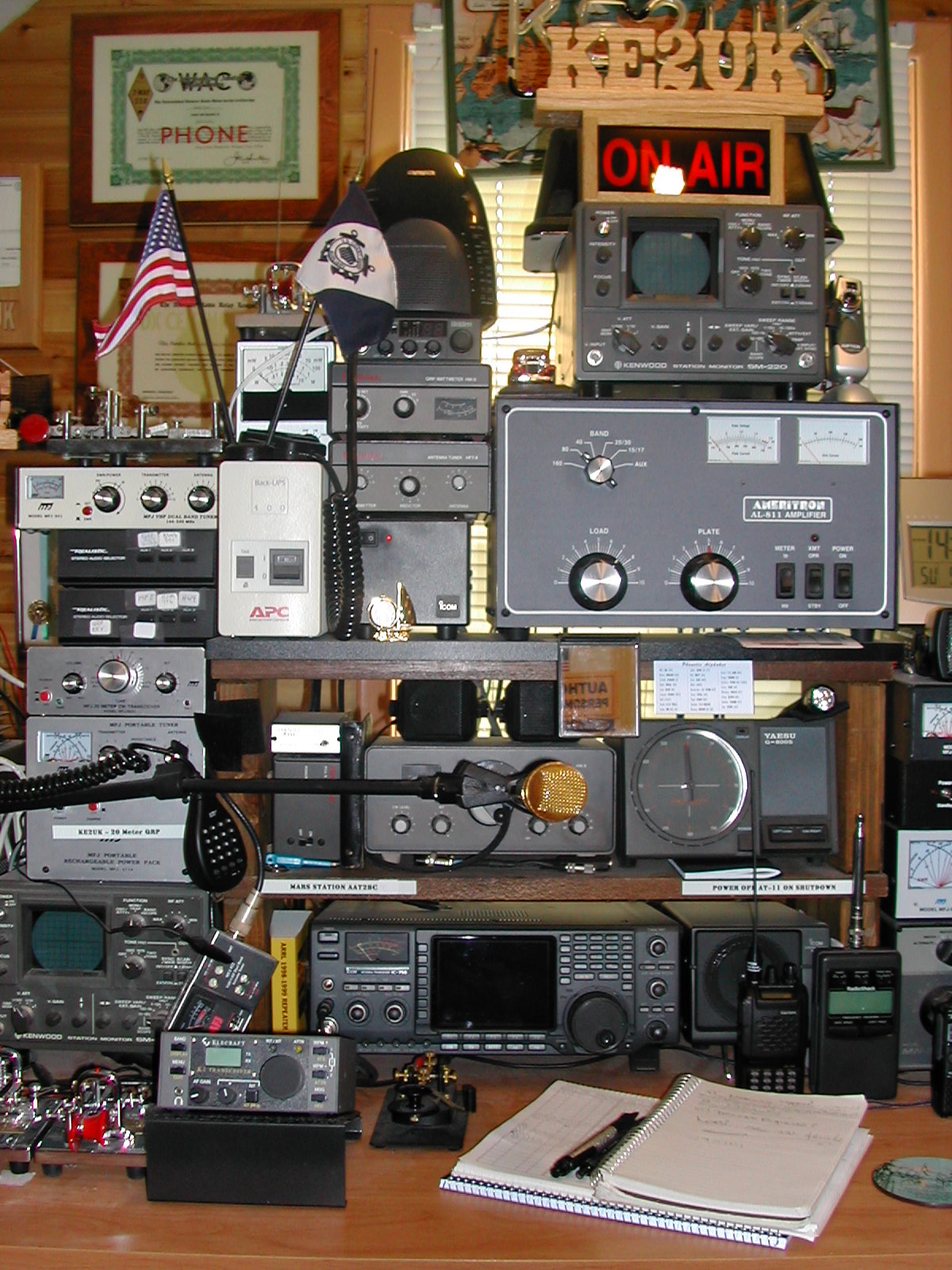Sailing News
Lands’ End Announces Thrill of
the Mac Essay Contest
Enter to Win Your Spot on Board a Racing Yacht

Do you have what it takes to sail 333-miles from Chicago to the Northern tip of
Lake Michigan? The Chicago Yacht Club race from Chicago to Mackinac Island –
a.k.a “the Mac” – is the world’s longest freshwater race. Celebrating its
nautical heritage, Land’s End will offer the opportunity to join the race.
Anyone with a passion for sailing (experienced or not) can enter the Lands’ End
Thrill of the Mac Essay Contest. One lucky winner could win a spot on board the
Lands’ End yacht, “Guaranteed. Period.” alongside a savvy crew.
Write an essay of up to 500 words telling us why you'd like to race in the Mac.
Your essay will be judged on your passion to participate in the race (so throw
your heart into it), written composition (here's your chance to show off your
way with words) and prior sailing experience (if any). The lucky winner will
join the Lands' End crew aboard a brand-new, 38-foot C&C 115 sailboat. The prize
also includes air fare and hotel accommodations for the winner and three guests
in Chicago and on Mackinac Island, plus assorted other goodies. Essays must be
written in English and submitted in writing to 2 Lands' End Lane, Dodgeville,
Wisconsin 53595, no later than March 31, 2005.
For a complete set of rules, visit
www.landsend.com/rules.
Viking
Life-Saving Equipment Sponsors the
Challenge
Equipped with a RescYou
four-person offshore life raft from
Viking Life Saving Equipment, Scott
Duncan and Pamela Habek have set off on
the adventure of a lifetime. The couple,
both legally blind, is sailing around
the world in TOURNESOL, a 32' Valiant.
The journey, which is expected to last 2
years, began on October 12, 2004, in San
Francisco. For Duncan, the trip is an
opportunity to prove that people with
disabilities are capable of
extraordinary things.
"Visually impaired kids are always being
told what they can't do, and if they
hear it enough, they start to believe
it," said Duncan. "I want to show people
what they can accomplish."
In case of an emergency at sea, the
couple will be safe relying on the
Viking RescYou offshore life raft. Once
activated by pulling the painter line,
the raft will inflate within 10 seconds.
Manufactured to SOLAS standards, the
offshore life raft comes equipped with
two independent buoyancy tubes, each
capable of supporting the weight of the
number of persons which the life raft is
approved to accommodate.
The SOLAS approved ballast system with
15 gallon capacity in each ballast bag
along with the sea anchor will create
maximum stability in high seas. A
fluorescent international/SOLAS orange
canopy with SOLAS grade retro-reflective
tape on the canopy as well as the bottom
of the raft will make the raft highly
visible in an emergency rescue at sea.
Manufactured with a SOLAS grade fabric,
the life raft is extremely durable and
ensures longevity.
Viking, one of the world's largest
manufacturers of marine safety equipment
for over 40 years, has earned a
reputation for quality and
dependability.
To follow Scott and Pamela's adventure,
visit
www.blindsailing.com.
Contact Viking Life-Saving Equipment,
1400 NW 159th St, Suite 101, Miami, FL
33169. Phone: 305-614-5800; Fax:
305-614-5810. www.viking-life.com;
usasales@viking-life.com.
New
Coast Guard statistics show most boaters
who drown were not wearing life jackets
WASHINGTON U.S. Coast Guard statistics
released this week indicate 86 percent
of all boaters who drowned in 2003 were
not wearing life jackets. In addition,
alcohol involvement was a contributing
factor in approximately one third of all
reported recreational boating
fatalities.
More than 95 percent of boat owners
report having enough life jackets
onboard for all their passengers,
however 66 percent of them do not wear
their lifejackets every time they go
out, according to a Coast Guard study
conducted in 2001 and 2002 involving
more than 25,000 recreational boaters.
"Boaters need to be responsible for the
safety of themselves, their passengers
and other boaters," stressed Rear Adm.
J.W. Underwood, U.S. Coast Guard
director for operations policy. "This
means not only having life jackets on
board but requiring your passengers to
wear them all the time. You never know
when an accident will happen that will
prevent you from reaching for and
putting on that lifejacket."
The statistics also show the leading
contributing factors in boating
accidents are operator inattention,
carelessness/reckless operation,
operator inexperience, and excessive
speed. Eighty percent of those who died
were onboard boats whose operators had
not received boating safety instruction.
"There are still far too many deaths,
injuries and accidents," he continued.
"The key is education, which is why the
Coast Guard's Office of Boating Safety
has joined forces with a number of
recreational boating safety partners to
launch our 'You're in Command. Be
Responsible. Boat Safely!' initiative."
Recreational boating fatalities were
down 6 percent from the previous year,
continuing a 12-year downward trend. The
13 million registered boats in 2003
represent two million more registered
boats on America's waterways than 12
years ago.
The new statistics are posted on the
Coast Guard's Office of Boating Safety
website at http://www.uscgboating.org
and include statistics broken down by
state.
For additional information boaters
can visit http://www.vesselsafetycheck.org
or call the U.S. Coast Guard Infoline at
1-800-368-5647.
CQ CQ
CQ Any Station Any Station Any Station
The Auxiliary is looking for Amateur
Radio Operators
By Wayne Spivak - KC2NJV
National Press Corps
US Coast Guard Auxiliary
Photo by Ron Tomo - KE2UK
To an individual involved in Amateur
Radio, also known as Ham Radio, the
letters CQ sent via voice or Morse Code
is a request by the sender to talk to
anyone listening on the frequency.
Simply, the sending party is looking for
a pleasant conversation. Conversation is
what Ham Radio is all about, whether
it’s with someone down the block, across
town or on the other side of the world.
The USCG Auxiliary is calling, and we're
looking for a dialogue with those
citizens who are or want to be Ham Radio
Operators. Like every other emergency
based service, the Coast Guard operates
every day, in good weather and in bad.
We, in the USCG Auxiliary, operate
whether there is power to operate the
normal modes of communication, such as
phones, or whether the weather is bad,
and the normal means of communications
are out of service.
For more information, contact your local
Auxiliary Flotilla (www.cgaux.org). You
can make contact by either calling your
local Coast Guard Station (www.uscg.mil)
or finding the Flotilla on the web at
our Flotilla Finder: http://www.cgaux.org/cgauxweb/getzip.html.
U.S.
Proposes Ban on Killing Sharks
Currently, there are few international
restrictions on shark fishing, and the
U.S. has taken steps to ban the killing
of sharks for their fins. The government
has requested a reduction in the number
of fishing vessels allowed to hunt
sharks, and has requested that more data
be collected on shark populations.
These announcements were made by the
U.S. at the annual meeting of the
International Commission for the
Conservation of Atlantic Tunas (ICCAT)
that was recently held in New Orleans.
"I think that sharks have been abused
over the last 10 years," say William
Hograth, the Director of the U.S.
National Marine Fisheries Service. "We
haven't managed sharks in a very
sustainable manner."
Shark finning is the act of cutting off
the shark's fin and throwing the carcass
overboard. Fins are a delicacy in Asia
and command a high price. Therefore,
many fishermen catch the sharks, cutoff
their fins and throw the body overboard
to save space and weight on the vessels.
The demand for shark fins has increased,
and the United Nations estimates that
more than 100 million sharks are killed
each year. Even worse, in a study by
Dalhousie University last year, marine
scientists estimate that 90 percent of
the world's large fish, including
sharks, have disappeared since 1950.
Boat
U.S. Foundation Makes Funding Available
For Clean Water Grants
The BoatU.S. Foundation for Boating
Safety and Clean Water is seeking
nonprofit groups to help educate
mariners about good environmental habits
with grants of up to $4,000 for clean
boating projects. Clean Water grants are
designed to educate boaters on issues
such as petroleum pollution prevention,
pumpout education, and littering
prevention. Although all clean boating
education proposals will be considered,
the 2005 "focus topic" is on reducing
the spread of aquatic nuisance species,
with extra consideration given to
proposals that address the issue.
"Boaters who trailer their boats can
inadvertently transfer non native
plants, fish, and other species from one
body of water to another," explains
Margaret Podlich, environmental director
for the BoatU.S. Foundation. "When alien
species are spread to new waters, they
can devastate the native ecosystem. We
are looking for proposals that educate
boaters about practical habits to
prevent the further spread of invasive
species - for example, zebra mussels in
middle America, purple loosestrife in
the Great Lakes or even the infamous
snakehead in Maryland."
Last year's grant program received 62
proposals. Of these, 19 projects in 15
states were selected for funding. To
view previous grant projects, learn more
about aquatic nuisance species, or
download a 2005 application, please
visit http://www.BoatUS.com/Cleanwater/grants.
Applications must be e-mailed or
postmarked by midnight February 1, 2005.
The BoatU.S Foundation for Boating
Safety and Clean Water is a national
501(c)(3) nonprofit education and
research organization primarily funded
by the voluntary contributions of
575,000 members of BoatU.S., the
nation's largest recreational boat
owners association. The Foundation has
more than a dozen programs including the
only accredited, free, online general
boating safety course, a low-cost EPIRB
rental program, the "Help Stop the
Drops" clean fueling campaign, a free
kid's Life Jacket Loaner program, and
grants for nonprofit groups for boating
safety and environmental projects.
ADVANCED RULES SEMINAR
Feb 11th from 1800 TO 2200 Bert Foster
and Cliff Black (Regional Area Judge for
Area K) are holding an advanced rules
seminar at Wayzata Yacht Club, MN.
This course is designed for more
advanced competitors, ie "intermediate
level" (3-5 years racing as tactician)
who want to move up to "Black Diamond
level" and "Black Diamond level" who
want to move up to "Double Black Diamond
level".
Students in this seminar are expected to
have a good working knowledge of Part 2
(When Boats Meet) of the Racing Rules of
Sailing (RRS) and want to go further to
understand US Sailing interruptions of
the rules themselves and how the
"Appeals Decisions" impact what you can
and can't do on the race course.
This Seminar will also cover the
"Changes" in the RRS for 2005. The WYC
is delighted to have Cliff Black, a very
experienced senior US Sailing Judge,
come from Chicago for this seminar.
This seminar is $40. Send check to
Wayzata Yacht Club, Steve Bren, PO Box
585, Wayzata, MN 55391 or call
612-839-7386
US
SAILING JUDGES WORKSHOP & EXAM
February 12 & 13
This is for sailors who have an interest
in becoming a US Sailing Judge. You will
have the opportunity to take the
workshop and the test. The workshop will
be given by Cliff Black and another US
Sailing Judge.
A US SAILING Judge is qualified to judge
any local or regional event in the US.
To be certified as a Judge, one has
demonstrated a thorough knowledge and
understanding of the current racing
rules, and the protest process. They
also must possess judicial temperament,
a reputation for mature judgment and
have an outstanding reputation for
integrity. Additional requirements
include experience in race management
and significant experience as a racing
sailor. Judges must attend a workshop
and pass a written test prior to
becoming a judge and again each time
they re-certify. Judges are certified
for a four year period. For more info
see
http://www.ussailing.org/judges/judges_program.htm.
Judge candidate fee is $40. Mail your
check with your personal information,
to: Wayzata Yacht Club, Steve Bren, PO
Box 585, Wayzata, MN 55391 or call
612-839-7386
Ocean
Sail Racing Crewmembers are Dedicated
PFD Users
 |
| Crew members of the
racing sloop Blue Yankee
with their Orca Gear
lifejackets. Photo
courtesy of Meghan Sepe
Photography |
In May of 2002, tragedy struck the crew
of the ocean racing sloop Blue Yankee
when Captain Jamie Boeckel died after
falling overboard during the 57th Storm
Trysail Club's Block Island race. He was
thrown from the bow when the spinnaker
pole broke as he was completing a
spinnaker change. Neither Boeckel nor
the crewman who dove in after him was
wearing personal floatation devices.
These days, the entire crew wears Float
Tech lifejackets from Orca Gear.
The patent-pending Float Tech lifejacket
is a comfortable, lightweight,
all-season jacket combined with the
safety of a fully functional lifejacket,
currently under USCG review as a Type V.
Upon immersion in water, its zip-in,
inflatable liner activates automatically
within 3 to 5 seconds. And it has two
manual-backup inflation systems.
The jacket shell material is waterproof,
breathable nylon and features a hidden
hood and zip-off sleeves to accommodate
changes in season. The inflatable liner
fully zips out, and will be compatible
with other Float Tech-style jackets and
shells in the future.
Steve Benjamin is a frequent helmsman
and tactician of top offshore racing
yachts. He's also a ten-time national
champion sailor, the 1984 Olympic silver
medalist in the 470 Class, and the 1980
world champion in the 505 Class. He
said, "The Float Tech lifejacket is
simply amazing! It exceeds the
versatility and comfort needs of the
competitive racing sailor, while
acknowledging the aesthetic and
functionality needs of the recreational
boater. It's about time, and I love it"!
Orca Gear was recently a recipient of
the Freeman K. Pittman Editor's Choice
award as Top Gear for 2004 by Sail
magazine. To learn more about this
unique lifesaving device, visit
www.orcagear.com.
Milwaukee Community Sailing Center to
Honor Lakefront Leader at Sailor’s Ball
David Lubar, founder and chairman of
Lake Express, will receive the Lakefront
Leadership Award at the Milwaukee
Community Sailing Center’s (MCSC)
Sailor’s Ball. The award is given in
celebration and honor of Lake Express’
significant contribution to the
promotion of Milwaukee’s lakefront.
For more than a quarter of a century
MCSC has provided opportunities for all
Milwaukee-area residents to explore the
lakefront and the waters of Lake
Michigan.
This year MCSC has created a new award,
the MCSC Lakefront Leadership Award to
honor an individual or organization that
demonstrates creativity and
responsibility in the promotion of
Milwaukee’s lakefront and the waters of
Lake Michigan through economic,
educational, ecological or cultural
endeavors.
This year, MCSC is pleased to honor
David Lubar and Lake Express, which
operates the first U.S.-built high-speed
auto ferry, expressing passengers and
cars between Milwaukee and Muskegon,
Michigan. The award will be presented at
MCSC’s Sailor’s Ball on March 5, 2005,
an annual fundraiser that benefits the
Sailing Center’s Youth and Disabled
Programs, and facility improvements.
MCSC knows that the best way to protect
our precious lake is to have a community
that appreciates and values her. With
the creation of the Lakefront Leadership
Award MCSC strives to bring care and
promotion of Milwaukee’s most valuable
natural resource into the public eye.
“Lake Express gives Milwaukee residents
another opportunity to enjoy Lake
Michigan in a safe and
environmentally-friendly way. It is a
welcome addition to our lakefront and
David Lubar deserves a great deal of
credit for having the vision to bring
high-speed ferry service to Milwaukee,”
says John Galanis, chairman of the
Sailing Center’s Steering committee.
David Lubar remarked, “on behalf of Lake
Express and all our associates, I am
thrilled to receive this award from the
Milwaukee Community Sailing Center. In
our inaugural year there were thousands
and thousands of leisure and business
travelers, with cars, motorcycles, and
bikes as well as on foot who took the
ferry as part of their leisure and
business pursuits. Lake Express saved
them time and stress by providing a fun,
fast and easy means of crossing Lake
Michigan to gain access to the
tremendous natural resources and
activities available on both sides of
Lake Michigan.”
MCSC strives to expose people of all
ages, backgrounds and abilities to the
joys of Milwaukee’s most valuable
natural resource. Thousands of adults
and children have learned to sail
through affordable MCSC classes. MCSC
also provides a fleet of nearly 80
sailboats for use in its classes and
open sailing. MCSC further serves the
community through sailing scholarships
for at-risk youth and specially equipped
boats for people with disabilities.
The Sailor’s Ball has been known for
years as Milwaukee’s “fun” ball. This
year’s theme, Lakefront Luau, promises
even more. Rather than a conventional
sit-down dinner, there will be a series
of galley stations, an exciting silent
auction, island-style entertainment,
music and decorations. Guests are
encouraged to wear themed costumes or
casual attire to the ball held on March
5, 2005 at the Italian Community Center.
For Sailor’s Ball ticket and
sponsorship information call
414-277-9094 or log on to
www.sailingcenter.org.



